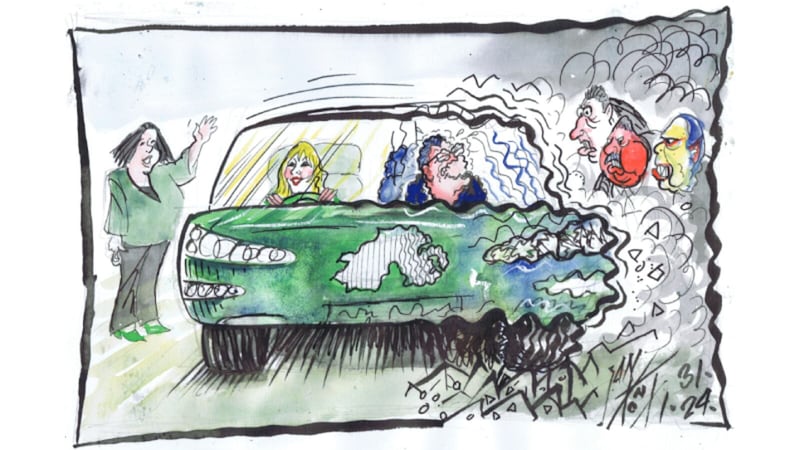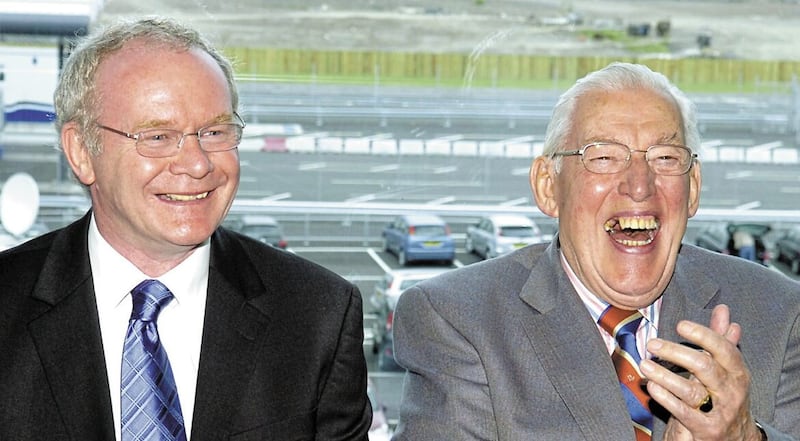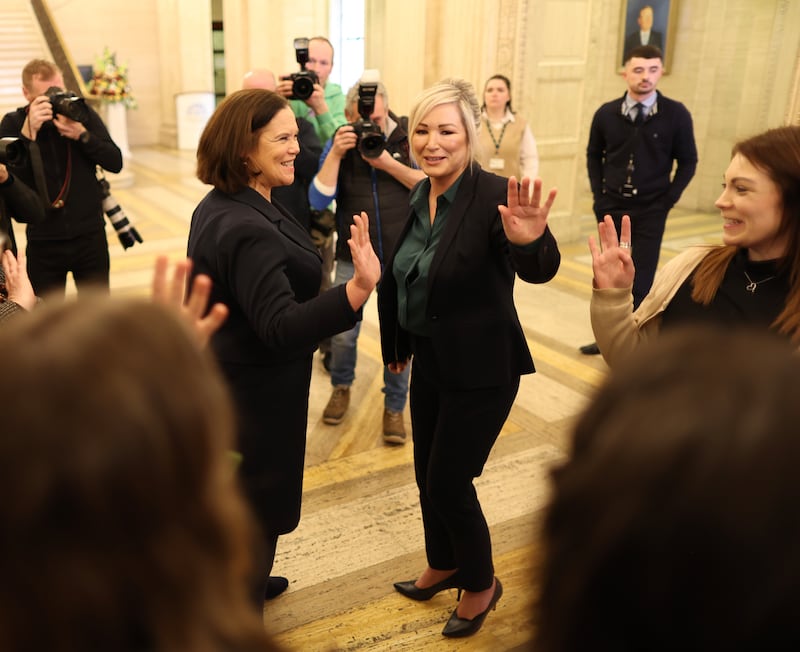“What do the rules say?” That was my reply to an anti-deal loyalist I was speaking to on Wednesday morning, when he asked me if I was bothered by the fact that Michelle O’Neill was likely to be appointed first minister in a few days’ time.
He paused for a few seconds - although it felt much longer - shrugged his shoulders and said: “The rules say there can’t be one unless unionists agree to appoint a deputy to her.”
Hmm. It was a fair point, actually. If the DUP don’t give it the nod of approval then Michelle O’Neill cannot be first minister. But that wasn’t the rule I was talking about; and well he knew it. In a deal agreed by the DUP and SF at St Andrews in 2006, the rules were flipped from the GFA original (largest party of largest community) to what we have now, just the largest party. And at the last election, in May 2022, SF emerged as the largest party.
Every single party knew what the rules were at that election. Indeed, the DUP spent much of the campaign stressing the importance of unionists backing it to remain the largest party.
And while I admit to being disappointed - I’m a unionist, after all - that Sinn Féin came out on top, I had no difficulty whatsoever with SF taking the top post. I say top post, even though everyone knows FM and dFM are co-equal in terms of power; that said, I also acknowledge the psychological significance of first. SF didn’t make a song and dance about it, but it was quite clear that their support base loved it.
- Brian Feeney: Forget smoke and mirrors of DUP deal – the real change for unionists will be a Sinn Féin First Minister in Michelle O’NeillOpens in new window
- Red, white and blue command paper seeks to restore unionist veto at Stormont – Brian FeeneyOpens in new window
- The Irish News view: Though they fizz with rage against progress, the doom-mongers and naysayers must know they have lost the argumentOpens in new window
Loved it so much, in fact, that the longer the DUP refused to reboot the executive, the greater the numbers across the nationalist/republican communities who believed the real reason for stalling was that it didn’t want to ‘serve’ as deputy to a nationalist, republican or Catholic.
As it happens, I never believed that to be true. Yes, there were elements of loyalism which didn’t want to ‘enthrone’ (their word) Michelle O’Neill as FM, but I didn’t speak to a single DUP or UUP MLA who said they would refuse to support the appointment once a deal had been completed. That was one of the key reasons I believed that a deal would be possible, because refusing to appoint O’Neill wasn’t a red-line issue for them.

I remember the day Ian Paisley was appointed First Minister, on the back of enormous success in the 2007 assembly election: 36 seats, 207,721 votes and 30% (other unionist parties accounted for 17%) of the total. It was an extraordinary result for the DUP, enough for Paisley to welcome Martin McGuiness as his deputy. It was a psychologically important day for unionism. And the story went around the world.

So, too, will the story of Michelle O’Neill’s appointment as first minister. It wouldn’t even matter if it were someone else from SF: the very fact that it is someone from the nationalist community would be an enormous story.

It talks about the demographic, political and electoral switches in Northern Ireland. It also raises some tough questions: the Rev Alan Irwin, for instance, whose father and uncle were killed by the IRA, claimed that “society in many ways has lost its moral compass”.
Fear of change and hurt shouldn’t allow some to push unionism into yet another cul de sac
Many others - and not just from the unionist community - were appalled by her comments last year that she thought there was no alternative to the IRA campaign.
It isn’t set in stone that SF will remain the largest party. It isn’t set in stone that SF will continue to occupy the FM role. What is set in stone is that NI has changed and will continue to change.
The change is unstoppable, but not necessarily to unionism’s disadvantage. Some of the change will hurt. So be it.
Fear of change and hurt shouldn’t allow some to push unionism into yet another cul de sac.




